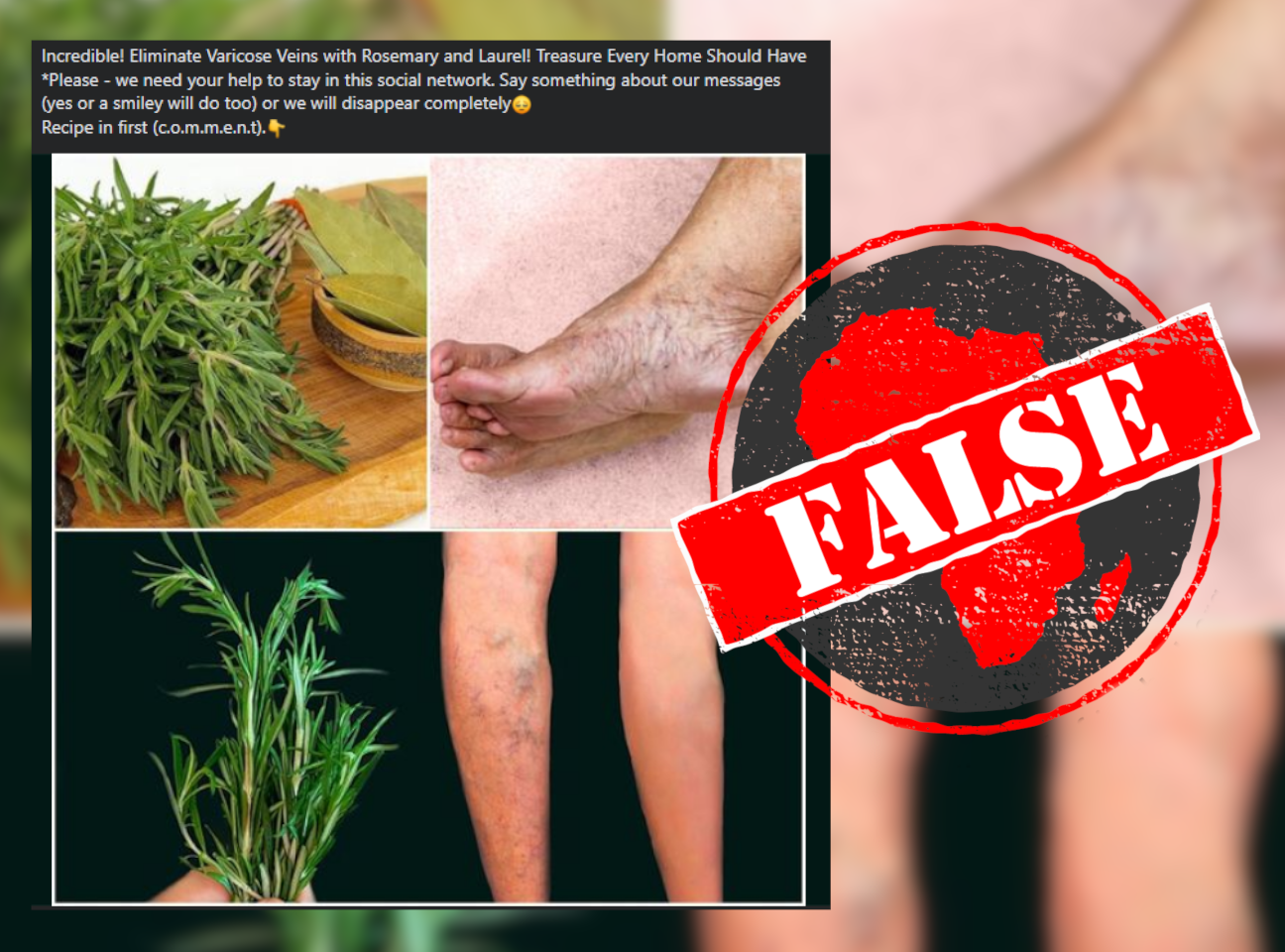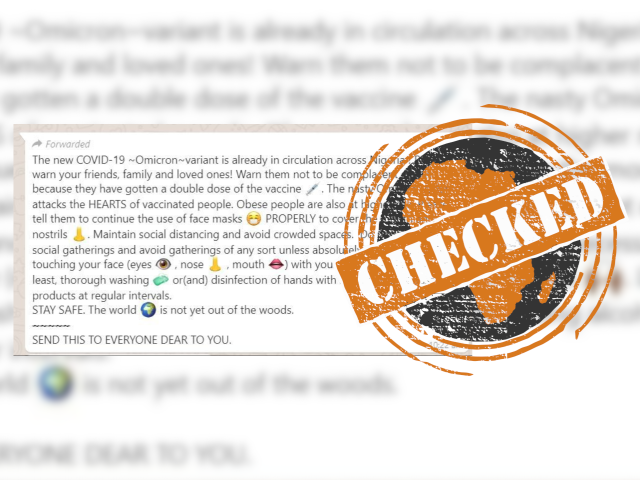IN SHORT: Social media posts claim you can “eliminate” varicose veins using rosemary. But these claims are false. While you can take steps to prevent and treat varicose veins, there is no cure for the condition.
Several Facebook posts claim that rosemary and laurel can be used to “eliminate” varicose veins.
“Incredible! Eliminate Varicose Veins with Rosemary and Laurel! Treasure Every Home Should Have,” the posts read.
Varicose veins are swollen veins that lie just under the skin. They mostly occur in the legs but they can also occur in other parts of the body.
Rosemary is a small plant of the mint family, usually used to flavour foods, while laurel is an evergreen shrub or tree with yellow flowers and blackish berries.
The messages prompt social media users to comment on the post: “*Please - we need your help to stay in this social network. Say something about our messages (yes or a smiley will do too) or we will disappear completely😔 Recipe in first (c.o.m.m.e.n.t).👇”
The same message has been posted on Facebook here, here, here, here, here, here, here, here, here, here and here.
A similar video doing the rounds on Facebook in South Africa claims that concoctions made from rosemary, bay leaves and cinnamon also make varicose veins “disappear”.
The video provides two recipes, claiming that rosemary stimulates blood circulation which can treat varicose veins.
But is there evidence for these remedies? We checked.

No cure, only treatment, for varicose veins
Varicose veins most often affect the veins in the legs because standing and walking increase the pressure in the lower body’s veins.
US academic medical centre Mayo Clinic points out that varicose veins are a cosmetic concern but can sometimes also cause aching pain and discomfort, and lead to serious health problems.
Anyone can get varicose veins, but age, weight, pregnancy, and standing or sitting for long periods can increase a person’s chances of getting them, says the UK’s National Health Service.
There is no cure for varicose veins but there are treatment options that can reduce their appearance and relieve discomfort. These depend on the severity of symptoms and range from less invasive options, such as elevating the legs several times a day and wearing supportive stockings, to more invasive options, such as vein surgery.
There are also steps you can take to prevent varicose veins, such as maintaining a healthy weight, exercising regularly and not wearing tight clothing.
We found no treatment or prevention options for varicose veins that included rosemary as an ingredient.
When it comes to potentially bogus medical cures, speak to an expert
There are red flags in the social media posts besides the implausible promise that rosemary can cure varicose veins. Prompting social media users to comment, adding “or we will disappear completely”, is a tactic scammers use called engagement bait.
Social media users do this to gain reach: the more people comment on or share a post, the greater the Facebook page or post’s reach.
The posts also lack evidence for the proposed varicose vein treatment, like published research or even a doctor’s name. It’s important to ask yourself: “Who has made this claim, what are their credentials and can those credentials be independently verified?”
When it comes to potentially bogus medical cures, it’s important to consult an expert, like a medical doctor, for medical advice.
And remember the golden rule: Don’t share information on social media that has not been verified.
Republish our content for free
For publishers: what to do if your post is rated false
A fact-checker has rated your Facebook or Instagram post as “false”, “altered”, “partly false” or “missing context”. This could have serious consequences. What do you do?
Click on our guide for the steps you should follow.
Publishers guideAfrica Check teams up with Facebook
Africa Check is a partner in Meta's third-party fact-checking programme to help stop the spread of false information on social media.
The content we rate as “false” will be downgraded on Facebook and Instagram. This means fewer people will see it.
You can also help identify false information on Facebook. This guide explains how.





Add new comment